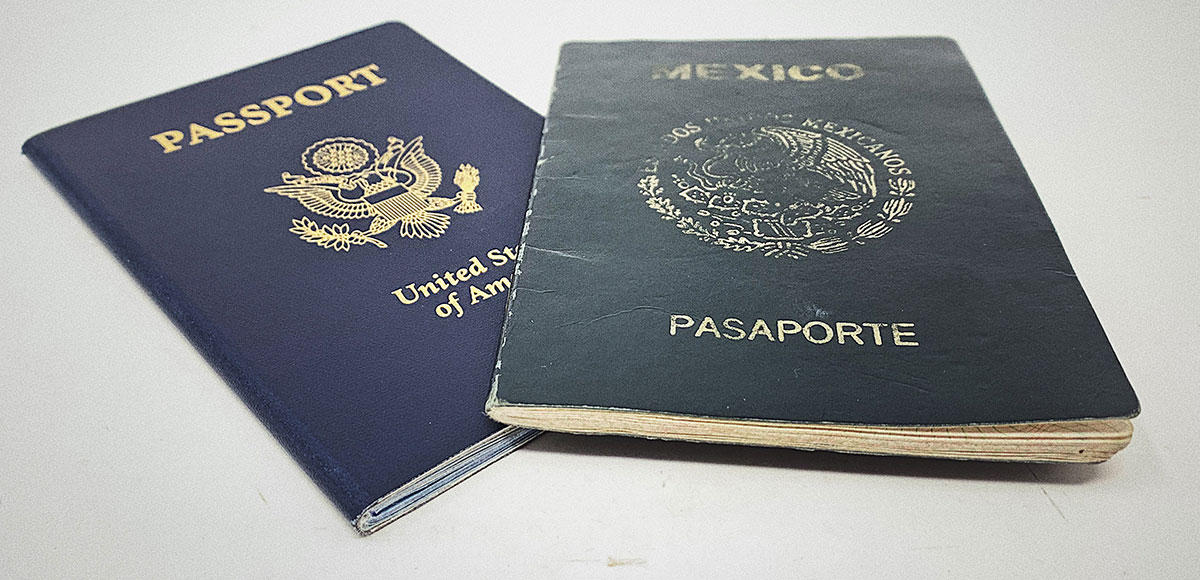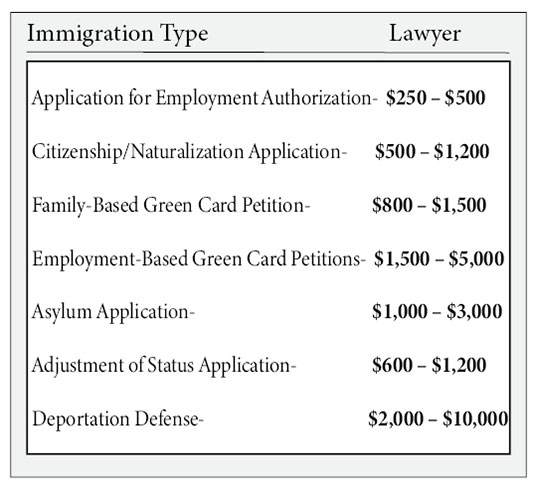As Valentine’s Day approaches, this is a story of true unwavering love, a story that spans nations, time zones, unimaginable challenges and life-changing decisions. With a legitimate marriage of four years and two bachelor’s degrees, my husband was still on the verge of deportation from the United States. What we did to stay together — in America — is a story of unquestionable love and dedication to marriage.
 While many people might think that someone from a foreign country marrying someone in the United States of America equates to automatic citizenship, we learned just how difficult the process can be after we fell in love, got married and endured the citizenship process of a lifetime. Photo by Molly Munoz
While many people might think that someone from a foreign country marrying someone in the United States of America equates to automatic citizenship, we learned just how difficult the process can be after we fell in love, got married and endured the citizenship process of a lifetime. Photo by Molly Munoz
__________________________________________________
My husband was born in Comitan, in the state of Chiapas, Mexico, and moved to St. Louis in 2013 to attend Missouri Baptist University to pursue two bachelor’s degrees in marketing and business administration. We began dating in 2013, got engaged in 2015 and married in 2016. We were told by immigration attorneys we could not start my husband’s process to become a permanent resident in the United States until after we were married. Originally, our attorney told us the process would take seven months at the most; it instead lasted 19 dreadful months. Legal fees, mounds of paperwork and countless sleepless nights spent staring at the cast of the moon on the ceiling consumed 19 months of my life from June 2016 to January 2018 because of the exhaustive process for my husband to become a U.S. permanent resident. Many people assume the process is quick and easy for someone from another country to become a permanent resident by marrying a U.S. citizen, but unfortunately, it is not quite that simple. Plane tickets round trip from the United States to Mexico, filing fees, legal fees, fees to translate any documents from Spanish to English from a certified translator — these are only some of the various costs associated with obtaining a green card in the United States. According to boundless.com, it costs approximately $1,760 for an individual applying for a marital green card. This does not include the cost for the medical exam or legal fees, which can cost between $100 and $500. Boundless.com is a website aimed at “empowering every family to navigate the immigration system more confidently, rapidly and affordably,” according to its mission statement. According to Thevro, a website aimed at connecting customers with the correct professional for their needs, allowing them “to make an educated decision when they’re ready to hire,” an immigration attorney charges between $150 and $300 per hour. Information supplied by Thevro.com Legal consulting costs approximately $800 to $5,000 for legal assistance for permanent residency (green card) applications. Mind you, we went through this process twice — once in 2016 for my husband’s conditional permanent residency card and again in 2019 to obtain a more permanent status. Just to satisfy the initial requirements of the residency process, we endured months of preparing paperwork, background checks, extensive medical examinations, fingerprinting and providing proof showing the marriage is legitimate. An applicant who needs a translator also incurs a significant amount of debt because the translator needs to attend all appointments with the applicant. Throughout these many months of preparation, we had to gather as many documents as possible to prove our marriage was bona fide, including wedding invitations, bank statements, rental agreements, multiple affidavits, medical bills, utility bills with both of our names on all statements, paycheck stubs, insurance information, tax returns, copies of all credit cards, birth certificates, Social Security cards, passports and we even had to notarize personal wills. I can honestly say I never thought I would have to draw up a will in my early 20s. We also had to create a scrapbook of pictures of us with friends and family from the beginning of our relationship proving that we had authentic relationships with our families and mutual friends. These pictures had to be placed in chronological order with a description of who we were with and where we were in each photo. We made a total of three inclusive scrapbooks to send to U.S. Citizenship and Immigration Services, or USCIS. Throughout these 19 months, our attorney had to check every single document prior to sending it to the government and my husband had to be coached on multiple occasions to be prepared for the interview. A simple misspelling of a word can force you to either restart your process from the very beginning for “incorrect” paperwork or can even cause you to be deported for 10 years, which is the average ban limit by the U.S. government. In November 2017, we received my husband’s appointment letter in the mail explaining what he would need to bring with him along with the appointment date and time. Jan. 17, 2018, my husband got on a plane to Ciudad Juárez, in northern Mexico, for his scheduled appointment two days later. According to the El Paso Times, Ciudad Juárez is among the 50 most dangerous cities in the world mainly because of drug cartels. I chose not to fly to Mexico with my husband because the applicant is not permitted to bring any other individuals with them to the consulate, and I would have had to stay in the hotel room in a dangerous city I did not know. In the consulate, you are not permitted to carry any additional belongings beyond what is required for the interview, including a cell phone. Because we had barely been married a year and a half at this point, my husband was granted a conditional permanent residency card. In the United States, conditional cards are issued for a two-year time period and are issued for marriage green cards if the applicants haven’t yet been married for two years. The applicant cannot apply to remove the conditional status until 90 days prior to the green card completely expiring. Without removing the conditional residency, your status will show as expired, which can affect your ability to work in the United States or to travel. The U.S. Citizenship and Immigration Services website directly states, “If your conditions are not removed, you will lose your permanent resident status and you will become removable from the United States.” The second application was to issue a permanent 10-year green card, which was still a 13-month process. Once again, the second time around required hours of preparing paperwork, filing fees and legal fees. You may wonder, if I knew then what marrying someone from another country would entail, would I have continued to go through with it. The answer is yes, and I would go through it all over again to be with my soulmate. This was a true test of our love and the vows we promised, “for better, for worse, for richer, for poorer, in sickness and in health, till death do us part.” We both experienced unexplainable health problems during these long 17 months, which I believe to have been stress-induced. For about a year — and this was pre-COVID — I had an unknown infection in my body that even infectious disease doctors could not diagnose, but once my husband was officially approved to become a permanent resident, the infection disappeared. Death would have to be the only event to keep us apart from each other. Imagine having to go on with the duties of your everyday life with the nagging thought of a call that may come at any minute that could change your life forever. This wasn’t the long-awaited call of finally getting that job you so badly wanted, or the bidding war you won on the house of your dreams. This was the same gut-wrenching feeling of that unforgettable call I received when my grandmother died or when my baby sister was diagnosed with a potentially life-threatening disease. In just one call, my life could change forever. I felt like I was standing in a dark room with a spotlight shining right on me, so brightly to where I could hardly keep my eyes open yet I was invisible to everyone in the room. I let jealousy creep up on me, damaging my thought life. I was jealous of all of my friends who were getting married, and all they had to do was combine their bank accounts, move in together and go on a honeymoon. I was jealous that no one knew what I was going through no matter how much I tried to explain this nearly impossible process. Loneliness was never so prevalent in my life. I couldn’t focus on school or on productivity at work. I remember sitting in my office and crying so hard I couldn’t see my computer screen for several minutes until I could finally collect myself just enough to take that much-needed deep breath to calm myself and clear my head. My contacts would get so sticky and dry from crying that I would have to go to the bathroom to splash water on my face. I couldn’t help but think as I walked by my colleagues throughout the workday that they would never have to go through what I was going through. They would never experience the extreme fear of having to leave their home, family, friends and livelihood behind just to be with the one they love. On Monday mornings, when everyone would gush about the memorable weekends they had, I could only focus on the exhaustion I had from preparing paperwork and sending out expensive checks to the government, just so my husband could continue living in the same country as me. I had no one to confide in, no one who was going through what we were and, frankly, it was lonely. Our only option was to lean on each other. There are defining moments in our lives which oftentimes are challenging and maybe even life-threatening. My life physically was not necessarily threatened, but my future and livelihood were at stake where I was forced to choose to permanently move to a new country or a difficult decision that could result in divorce. These are the moments that define us as human beings, shape our character and make us strong in so many unexpected ways.


